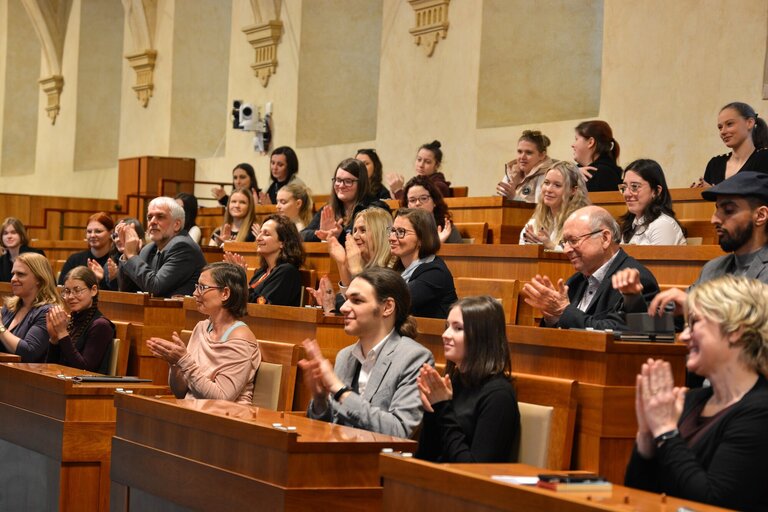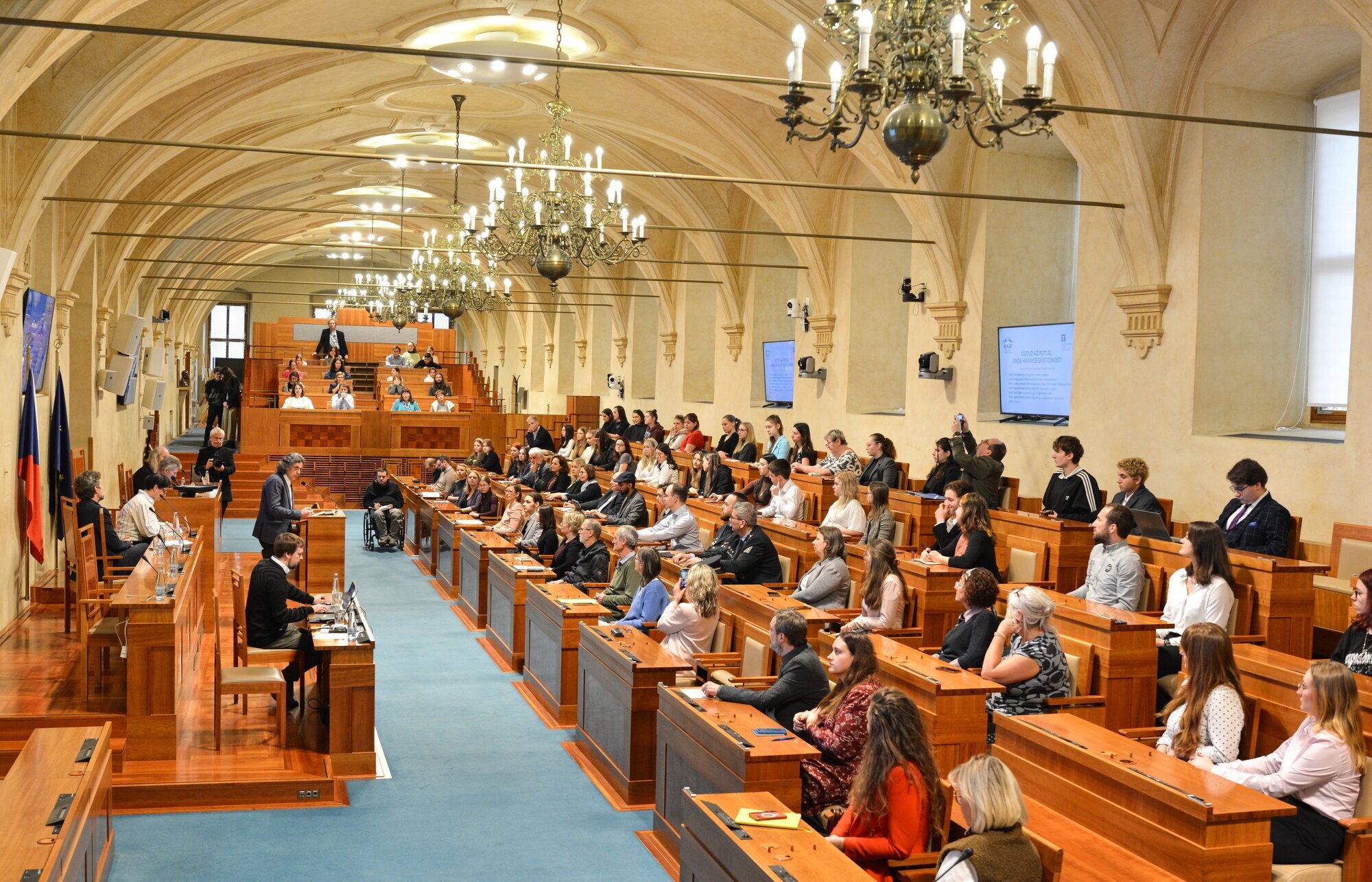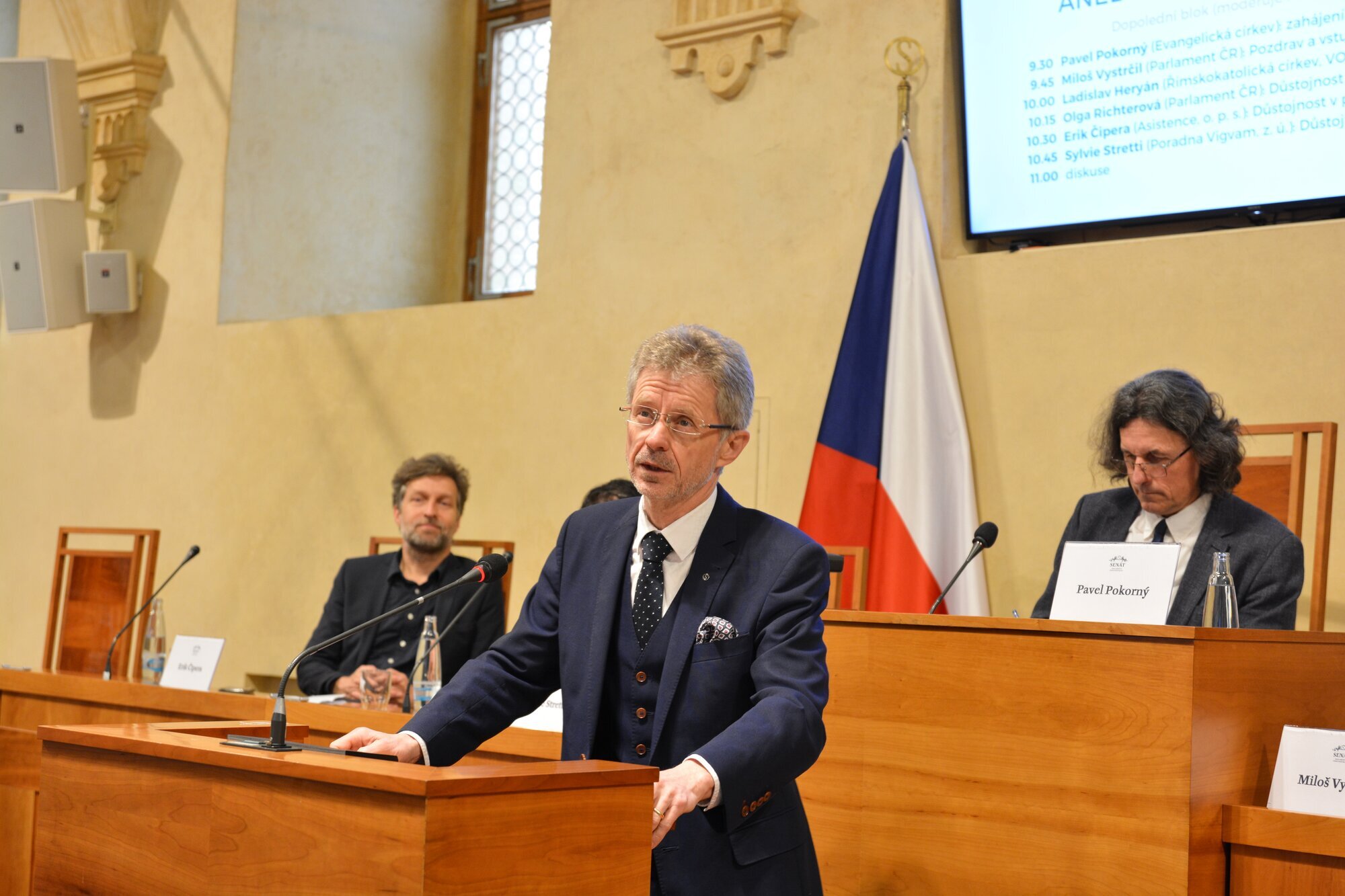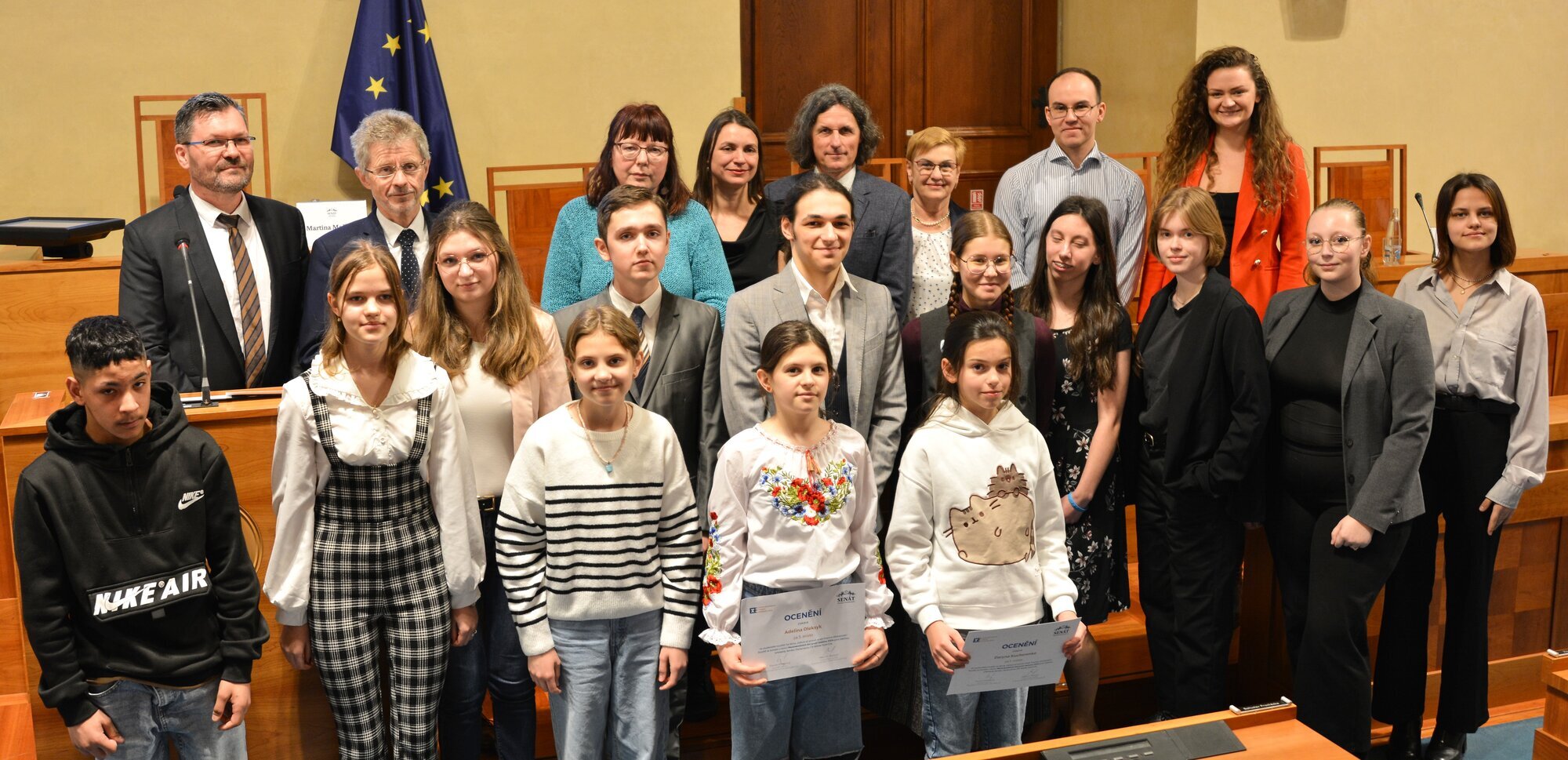Interdisciplinary conference at the Senate
On Thursday, 21 March 2024, the Evangelical Church of Czech Brethren organised the third annual interdisciplinary conference at the Senate of the Parliament of the Czech Republic.
The meeting was held as part of the International Days Against Racism, which are being introduced in the Czech Republic by the Evangelical Church of Czech Brethren. The conference takes place under the auspices of Senate President Miloš Vystrčil. In the conference hall of the Valdštejn Palace, the discussion focused on human dignity from various perspectives.
“Standing up for human rights is one of the fundamental tasks that the church has in our society. We consider this year’s theme, dignity, a very topical issue. At a time when society seems to be polarizing, when fears and opinions divide and strained relationships translate into conflicts (not only) on social media and lead to intergenerational divisions and misunderstandings, we want to talk about the importance of valuing one another and reminding ourselves that all people are born free and equal in terms of their dignity and rights,” Jiří Hofman, spokesperson for the ECCB, explains on behalf of the organizers.
At the beginning, Miloš Vystrčil took the floor and greeted the participants, thanking them for the interesting initiative. “Preserving and protecting human dignity is a topic that accompanies us every step of the way – whether we are dealing with the way we treat the sick, the lives of people with disabilities, or life in old age. Respecting every individual’s dignity is a benchmark of maturity and freedom in society. I appreciate the fact that the Senate of the Czech Republic is a dignified place for such discussions,” he said.
After the introductions, the first morning block of lectures began. Roman Catholic priest, Salesian, school and prison chaplain, Ladislav Heryán, offered a New Testament perspective on the issue of dignity. He brought up one of Jesus’ well-known statements: ‘Truly I tell you, whatever you did for one of the least of these brothers and sisters of mine, you did for me.’ (Matthew 25:40)
Olga Richterová, Deputy Speaker of the Chamber of Deputies, addressed the phenomenon of dignified interpersonal communication, including the very current (often depersonalised and hateful) communication in the online environment and on social networks. She also mentioned her own experience with hate speech and the spread of misinformation, of which she was a frequent target, especially in the past. In this context, she stressed the responsibility of each individual for what he or she incites and spreads.
Erik Čipera, the director of Asistence, a benefit society, elaborated on the topic of the dignity of people with special needs. In his view, politicians should address issues that don’t win them “political points” but still have a major impact on the quality of life. This concerns, for example, people with severe disabilities. Approximately 15,000 pepole in the Czech Republic need the highest (5th) level of care. These people need to be able to pay for at least 12 hours of care. However, the current state contribution only covers five.
Forty authors entered the student literary competition
The announcement of the results of the student literary competition is also a traditional part of the event. Since January of this year, students from all over the Czech Republic and Ukraine have been sending in their reflections and essays, in which they also elaborated on the topic of dignity.
An expert jury selected the 14 best papers from the ones that had been submitted. The results were announced at the end of the conference. Just like last year, the evaluators included professionals from the Albatros Media publishing house. The editors and proofreaders provide students with much-appreciated feedback.
The literary competition was bilingual
This year again, naturally, the topic of the war in Ukraine and its impacts on our society was one of the main themes. In the “motivation” box, the author of the winning entry in the junior Czech category wrote: “The war in Ukraine, the situation of the war refugees and the Czech citizens’ relationship to them is a topic that I have long been interested in. At the same time, I feel like the initial interest and support for Ukraine are waning. Although the situation there does not concern me personally, this is the case for many of my friends and classmates. Therefore, I feel that at least being able to formulate my thoughts in essays and debates is a form of support that I can offer. Words of support may not buy weapons, but they can give Ukrainians hope that we are not indifferent to their situation.”
The awarding ceremony was moderated by Martin Balcar, Secretary of the ECCB’s Central Church Office. The awards were presented by the President of the Senate Miloš Vystrčil and Synodal Senior Pavel Pokorný, together with the evaluators of the works. All the winners received prizes and financial awards. After the programme, the participants also had the opportunity to visit the representative premises of the Wallenstein Palace.
The event took place as part of a wider initiative called the International Days Against Racism, which the ECCB is introducing to the Czech Republic in cooperation with the German Foundation Against Racism (Stiftung gegen Rasismus). This series of lectures, meetings, church services, concerts, or even common meals, has been taking place all over the Czech Republic and Slovakia since 2021.
Jiří Hofman, Adéla Rozbořilová
Editorially abridged



